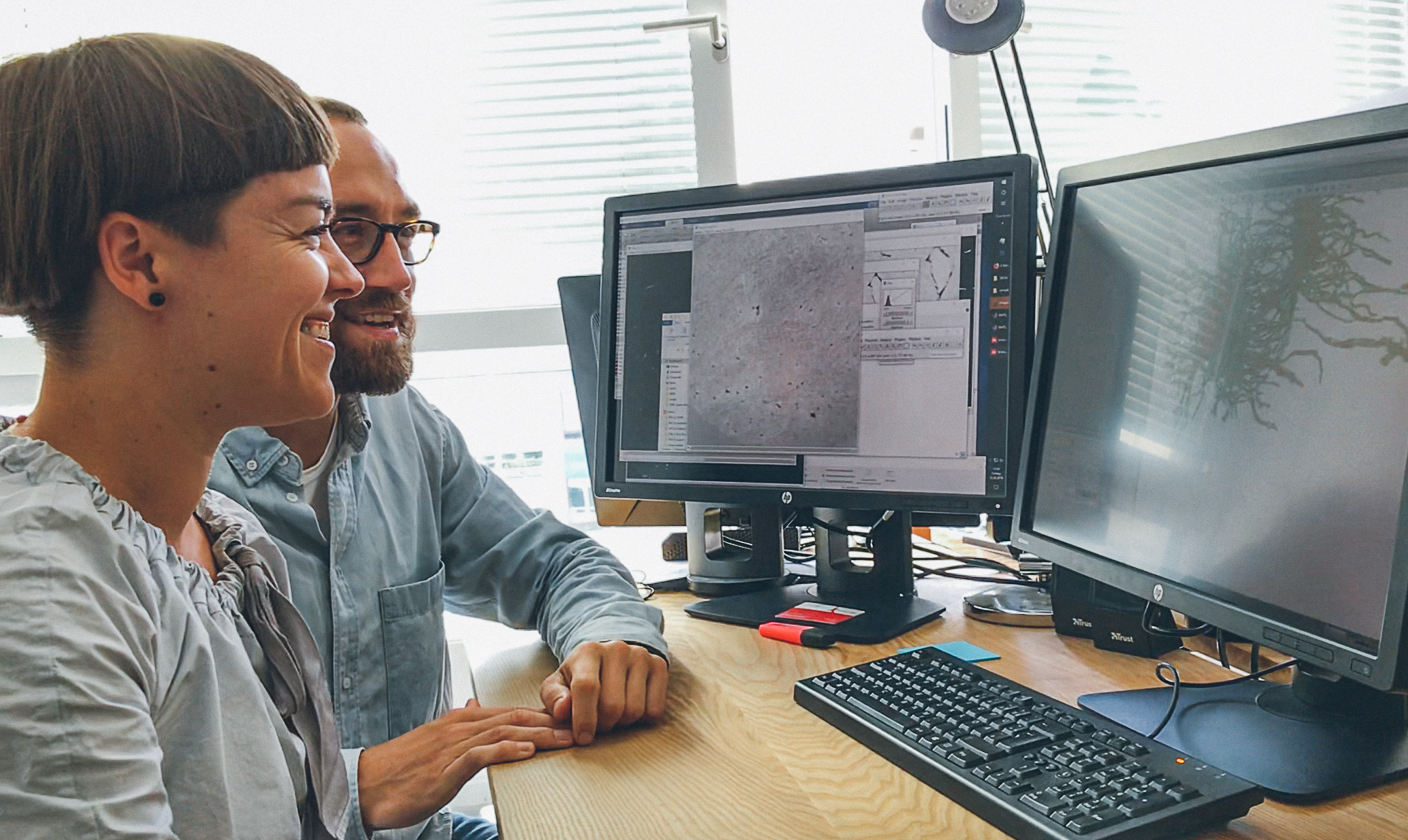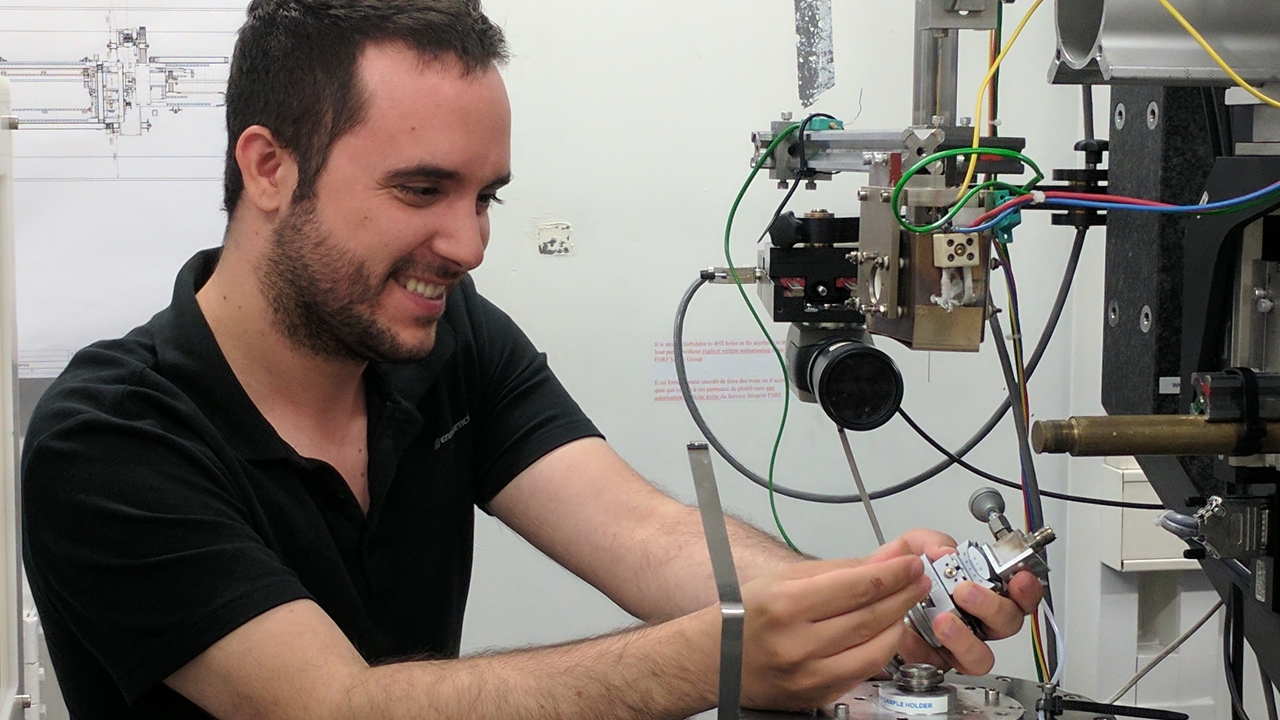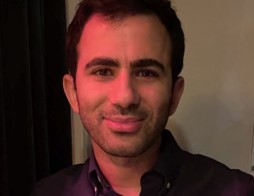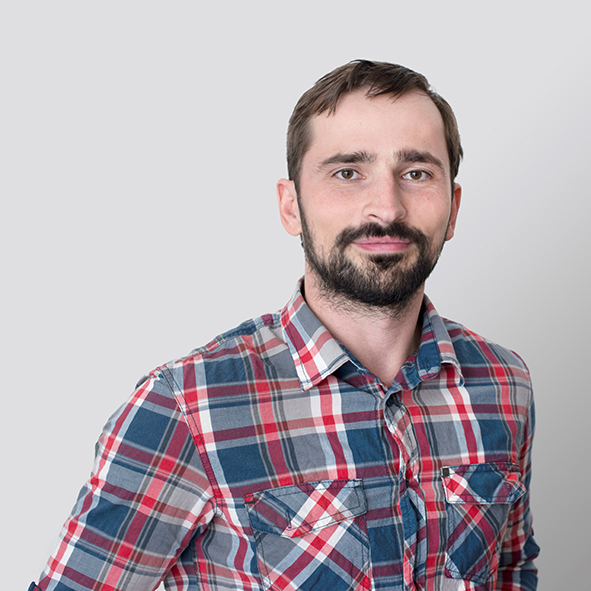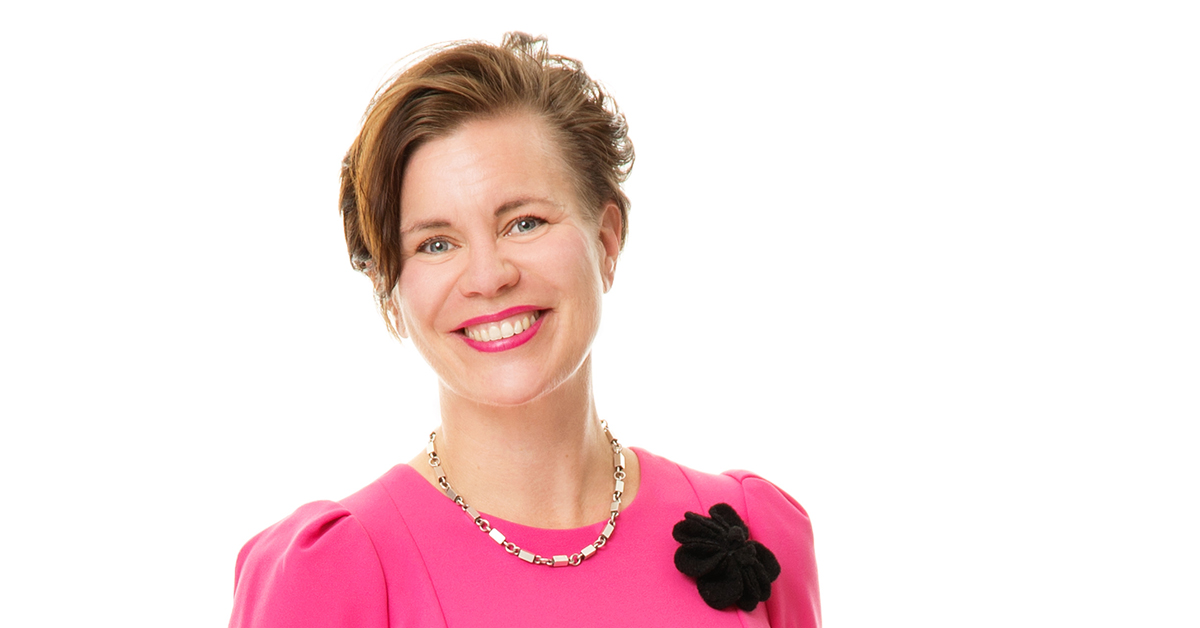The DESY Start-up School
The Start-up School offers an educational program to equip scientists and engineers with entrepreneurial skills.
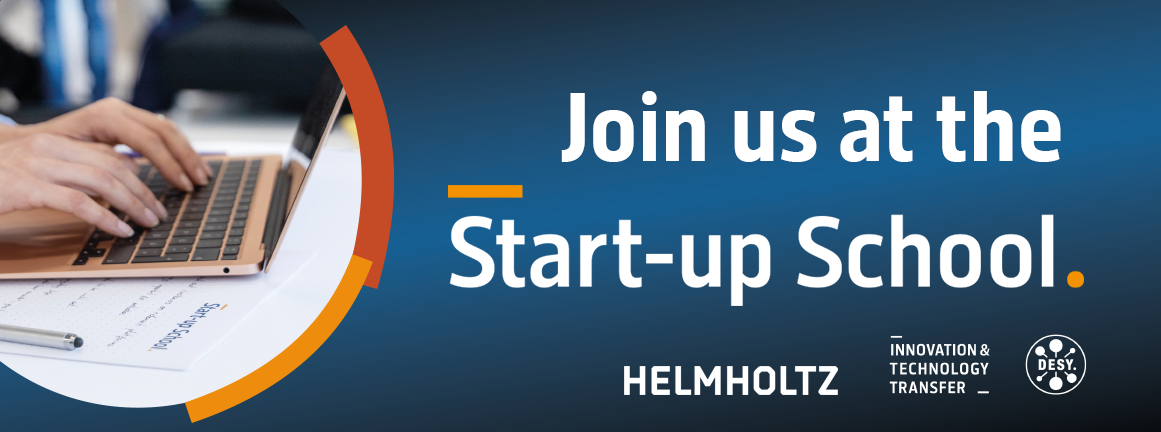
Business planning is one of the most important factors when launching a start-up. That is why the Start-up School curriculum focuses on business planning; the core for growth and success in the market. Like every entrepreneur, scientists launching start-ups need to determine the best services and products they can offer to their future clients. The Start-up School will provide scientists with tools in business development planning, budget setting, marketing strategies and finding funds. The support for anyone founding a business model in a scientific setting on the way to becoming a special kind of entrepreneur: a ‘sciencepreneur’.
Why the DESY Start-Up School?
Embedded in the context of using accelerators as the start for a business idea, DESY and the lightsources it develops and operates offer a huge potential for concepts to bring science to business. The DESY ecosystem also offers incubator space for start-ups, that can benefit from using all the technical capabilities at DESY in an integrated manner.
Currently, DESY is developing the 3D X-ray microscope PETRA IV, which will allow investigating biological, chemical, and physical processes beyond our current understanding. The 2025 cohort of the Start-up School will have the chance to explore new possibilities that PETRA IV will open up for businesses in the fields of health, energy, environment, materials science, as well as new methods in AI and data visualization. The curriculum in 2025 will therefore explore as well business opportunities around the upgrade of DESY’s synchrotron lightsource to PETRA IV.
The DESY Start-up School is part of the PETRA IV pre-project and is funded by the BMBFTR and Helmholtz Association - it is free of charge for the participants.
Benefits for Participants:
- A three-month incubation program to launch your idea on the market;
- The exclusive online program can be joined from anywhere;
- Taking part in tailored webinars specifically designed to help scientists become entrepreneurs;
- 1:1 coaching appointments with CEOs;
- The opportunity to join a European network of like-minded people, willing to contribute to the world of tomorrow with science and innovation;
- Learning about the upcoming 3-D X-Ray microscope PETRA IV and its potential for helping you extend your business service ideas, or develop your services for research and development in the industry.
The Program
The DESY Start-up School focuses on practical knowledge transfer. For this reason, experienced CEOs of pioneering scientific service companies who are willing to share their knowledge with the Start-up School participants act as mentors. After completing the program, the participants will present their business plan and pitch their idea to a panel of webinar facilitators, entrepreneurs, and a jury committee at a final pitch event.
The Start-up School program takes about 45 hours to complete, split into six modules over the course of three months. The webinars will be moderated by Pegram Harrison, Senior Fellow in Entrepreneurship from the University of Oxford, Saïd Business School.
For Whom is the Start-up School?
- Scientists, engineers, or students with experience in advanced analytical methods;
- For those interested in becoming a ‘sciencepreneur’ and might use support before releasing a business idea;
- Anyone with a background in physics, material sciences, chemistry, life sciences, data analysis, or any related research fields, wanting to bridge the gap between science and business;
- For people with industrial service ideas based on advanced scientific measurement methods.
More information
Application for the Class of 2026
The Start-up School registration for the next cohort will open early in 2026.
Cases and feedback from alumni and CEOs
Dr. Emely Bortel and Dr. Christian Seim conducting data analysis and visualisation of synchrotron-based measurements (image: Xploraytion GmbH).
To find out more please click here to read their case study.
Finden research scientist Antony Vamvakeros, PhD, working at ID15, ESRF to develop the next generation X-ray imaging (image: Finden Ltd.).
To find out more please click here to read their case study.
"I think we saved some months and probably years of experience, thanks to the start-up school," said Ahmet Bahadir Yildiz, CEO and Co-founder Scatterin. "It was really in-detail, it included everything we need, from finding customers and being customer-oriented to practicalities, like cashflow-things you don't normally think about very much in the beginning," he said.
Website Scatterin
“It felt like I moved back in time because they had the same questions that we had in mind when we started our company five years ago,” said Bernhard Hesse, CEO Xploraytion.
Website Xploraytion
“I wish I would have attended something similar when I started.” CEO Anna Stenstam, CR Competence, Sweden.
Website CR Competence
Lessons for Founders
"I get everything needed to bring a start-up idea to maturity".
Laser physicist Henrik Tünnermann is a research associate in the laser group at DESY and participated in the class of 2022 of DESY’s Start-up School. Here, he tells about his experiences.
Henrik, you are one of the graduates from the Start-up School offered by DESY last summer. What are your plans to found a start-up now?
I am definitely pursuing the idea further. However, I would first like to continue working as a scientist in laser technology at DESY for some time in order to develop more of the necessary skills and then bring along the optimal prerequisites to found a business.
So, what's your start-up idea?
As a laser physicist, I can plan, install and maintain complex laser systems - so I know my way around the hardware in the field of laser research. At the same time, I love programming - I've been doing that since I was 12 years old. For this reason, I can also develop the appropriate software for laser systems. This combination is rare. With this USP, I would like to start a service company in this field. Because such all-rounders are quite in demand in science as well as in industry – especially since nowadays more and more processes are automated, thanks to AI. I am able to offer technical as well as programming support together. In addition, many processes can be implemented more easily: I can write the right program for a necessary modification of a laser and also test it myself in practice. That saves time and money.
Did you have this idea before you started the Start-up School or did you develop it there?
The basic idea already existed beforehand, which is why I applied. But it was really vague, I developed a more detailed business plan while I took part in the Start-up School. That's the great thing about this offer: I get everything I need to bring an approximate idea to maturity for free. Information that I would otherwise have to pay dearly for or painstakingly gather. And the mentoring comes on top. I am still in touch with my coach today and can ask him for advice. For the application, I only had to fill out a few forms, describe my current job and explain why I am a suitable candidate for the Start-up School.
What is the program like?
The program comprises a total of around 40 hours of training - five sessions of four to five hours each, delivered by internationally renowned speakers. These include, for example, business professors from Oxford University who have an in-depth knowledge of entrepreneurship, as well as marketing and finance experts. In addition, there are two individual coaching sessions by CEOs of successful start-ups who, through their practical experience, know exactly what is important. As a participant, you learn how to work out a business plan, recruit employees, deal with business figures and read the market. And at the end, the participants then make a simulated pitch and present their business idea. A maximum of 15 people take part in a course - which makes it very interactive. You get a lot of theoretical input and learn how to put it into practice. A well-rounded curriculum.
The Start-up School took place exclusively online. Was that a disadvantage for you?
I don't really see any disadvantages in webinars. On the contrary, the effort required is much less than for a face-to-face event. After all, scientists from all over Europe took part. This way, no one has to travel to the event. It is also easier for the speakers to participate in this way.
Is there a risk in revealing one's business idea in such a circle? Could it possibly be plagiarized?
A lot of importance is attached to the confidentiality in this program. But I don't see such a big problem there - even less so with a pure service idea like mine than with one that is based on a new device, for example, and requires patent protection. I think that the decisive factor in the end is not so much the idea as the implementation, the commitment with which you push it and pursue it in the face of resistance. That is also what the program teaches you. And the DESY Start-up Office supports its employees and other scientists with various consulting services. I think the DESY infrastructure for knowledge transfer and spin-offs is very good. It reflects the political will to bring innovations into society in the most targeted way possible and thus trigger the so-called ripple effects: New solutions should spread as effectively as possible and have a positive effect.
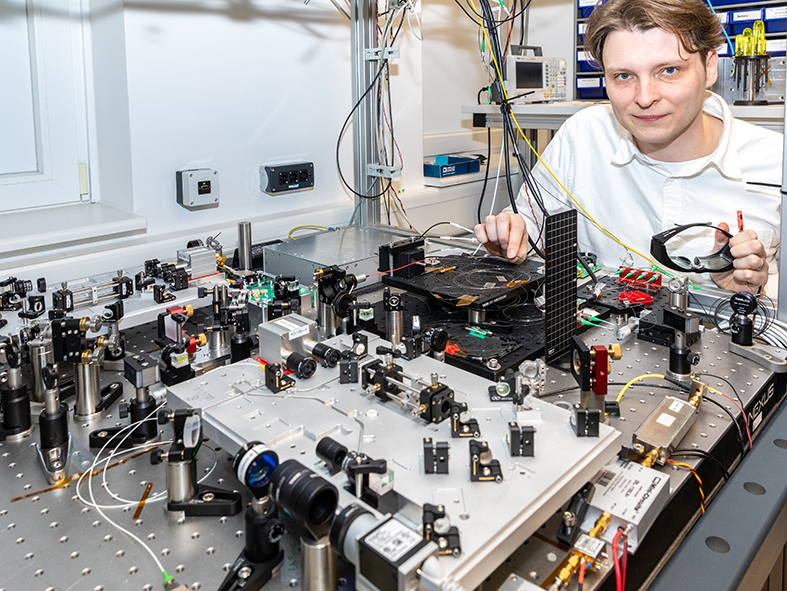

Katrin Schönert
Katrin can answer any inquiries about the Start-up School.


